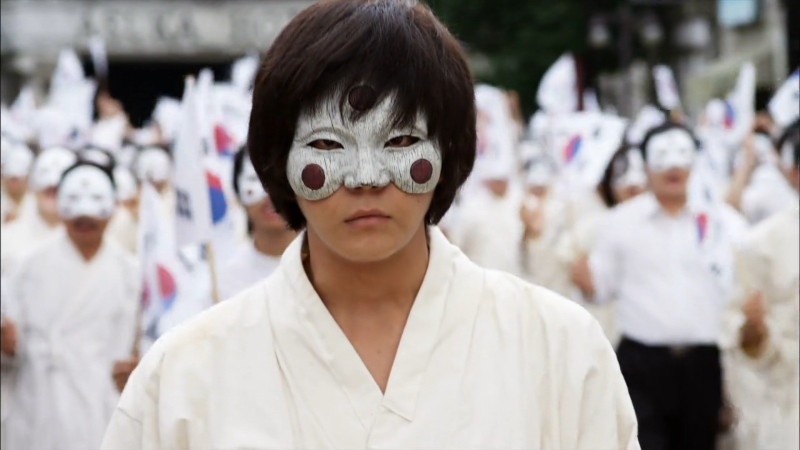
TYPE OF REVIEW ![]() : HINDSIGHT REVIEW
: HINDSIGHT REVIEW
Major finale spoilers! Click here for the less-spoilery First Impression Review.

So I wonder if Korea ever got independence from Japan?
Now, everyone knows how Korea’s fight for independence turns out (and the unfortunate struggles they would find themselves in a decade or two later). But going into the final two episodes of KBS’ Bridal Mask, you had no idea of the roller coaster of emotions that would lie ahead.
Bridal Mask (Gaksital/각시탈) deserves all the praise and acclaim and eventual accolades it’ll be sure to receive. There have been many heroic epics on Korean television and it’s a great testament to the talent in the country that such huge stories have been wonderfully brought to the small screen.
But Bridal Mask took it a step further. A brave, slickly produced and excellently performed series that barreled its way through and never looked back.
The story was excellent; during the Japanese occupation of the Korean peninsula, a Korean man learns his allegiance is misplaced towards an imperial regime that is oppressing and murdering his fellow countrymen. Lee Kang To uses his painful and tragic past and present to try and prevent a future that merely continues the vicious treatment the Japanese are inflicting on the Korean people.
As Gaksital, or Bridal Mask, Kang To aims to get revenge for the death of his family as well as protect the woman he loves, Oh Mok Dan, and help in the fight for freedom.
The writing was tight throughout. Every episode of Bridal Mask was action packed, speeding through without taking a breath. Next to the unflinching fight scenes, equally effortless moments of romance, politics and genuine emotion.
And that’s thanks in large part to the show’s stars. The series should prove to be breakout roles for Jin Se Yeon, Park Ki Woong, and Han Chae Ah. All were pitch perfect with their respectively multi-layered characters.
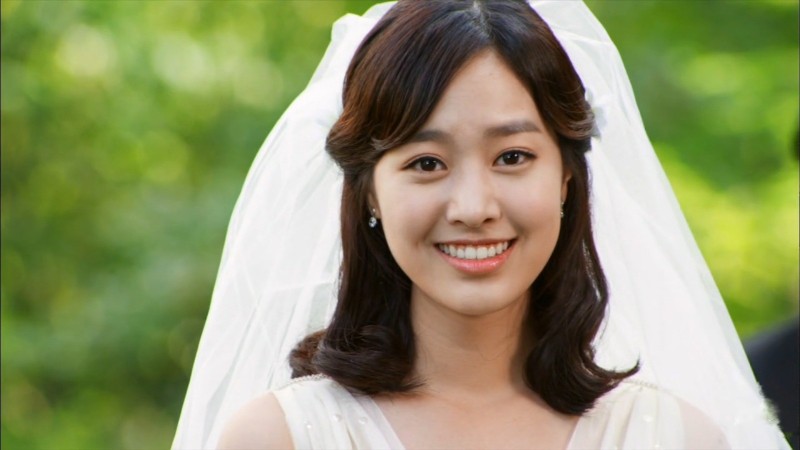
Jin Se Yeon gave an emotional performance as Mok Dan, a strong, selfless and brave woman who wouldn’t let anything or anyone break her resolve. Her bravery was inspiring and unyielding. You rooted for her when she fought back, you flinched when she acted without knowing what you the audience knew and you cried when she experienced great loss. She was the romantic lead, but also the tough heroine. Never just some bland pretty face for our title character to oogle at, but a fully rounded character that Jin Se Yeon effortlessly brought to life. It’s not a surprise why she’s already got a new gig so quickly after Bridal Mask.
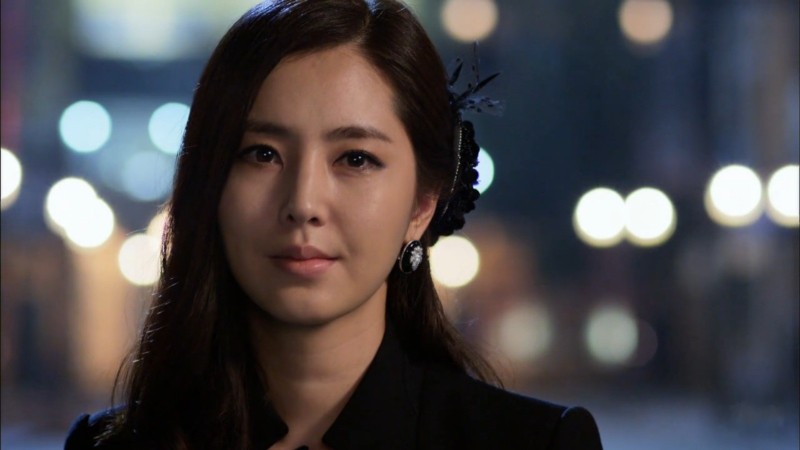
Han Chae Ah had maybe an even tougher emotional task as Ueno Rie, the Korean and former geisha, now adopted daughter of the leader of a secret nationalistic Japanese organization. She was cold and calculating, fierce and unflinching. But she was also vulnerable with a weakness in her heart for Kang To and maybe even for her emotional comrade in Shunji. She wasn’t just a cookie-cutter villainess. She definitely kicked ass and commanded a room when she needed to. But she was also broken. Han Chae Ah’s performance through Rie’s internal conflict made her final scene, saying farewell to her faithful Katsuyama and maybe head off to start a new life, whatever that would be, absolutely touching. She had her hand in some nasty stuff as the one-time princess, but her realization that there was more to life than more blood on her hands was excellently played out. And Han Chae Ah was the huge reason it worked.
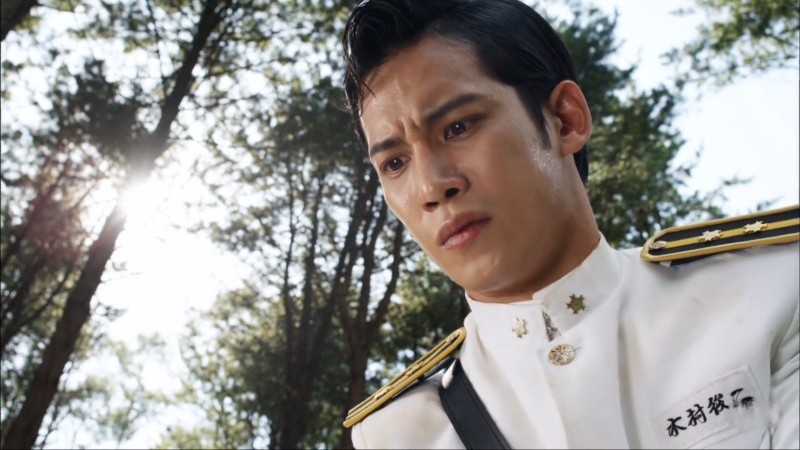
Park Ki Woong probably had the toughest road of any actor on the series. As Kimura Shunji, Park Ki Woong started out as the sweet, down to earth teacher whose love for Korea and Korean culture drove his passion for teaching Korean children. But Shunji quickly descended into the depths, turning into a ruthless and angry man hellbent on revenge. Shunji had plenty of blood on his hands, but the beauty of his performance was that no matter how increasingly disgusting and brutal his actions became, you still felt how broken he was. You understood his rapid descent into evil, yet you never gave up hope that he still had some good left in him, that he’d realize it before it was too late. Hope that he’d remember the times he’d roll around the grass with his best friend and brother (more of a brother than his blood relative) Lee Kang To.
His ultimate end was still that dramatic ambiguity that just gets you. As soon as he took the safety off that gun, you knew what was coming. But was it him finally realizing all that he had done? Or him just dying an honorable Japanese death. He wasn’t about to be killed by some Korean. But then again, he wasn’t about to let that best friend, that brother he once cared for so much and maybe (just now realizing) still cared for, be burdened with having his blood on his (Kang To’s) hands. Park Ki Woong more than delivered an incredible performance. It was a breakthrough performance, a career defining, ace of a performance. A legitimate tour de force.
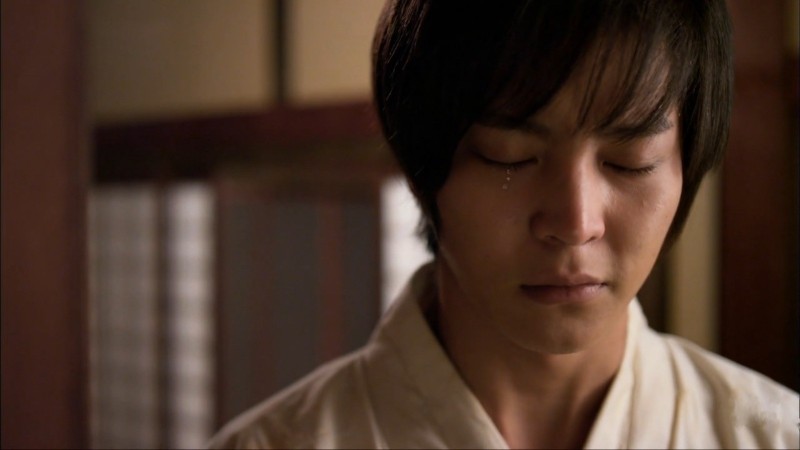
But with the biggest performance of the series though, Joo Won solidified his place as an actor in Korean entertainment for years to come. From his breakthrough role in blockbuster Baker King, Kim Tak Goo to the lighter, yet also high rated Ojakgyo Brothers, Joo Won has run the gamut in the types of characters he’s portrayed. From villain to romantic lead to legitimate hero, Joo Won has given increasingly commanding performances. Kang To’s journey was the opposite of Shunji’s. From a cold and brutal “Japanese dog” to the only hope of the Korean people, Joo Won helped take Kang To from being a hateful and ruthless man to a dashing and engaging hero.
Joo Won was the star the show, you knew that coming in. He was going to play the title character. But it was an interesting start to see him as the villain: Beating his own, once believed, mentally disabled brother in the middle of the public market; torturing his fellow Korean people; turning his back on his mother and brother for a ruling power that was more the oppressor than a beacon of hope. Then the ultimate tragedy opened his eyes. An excruciating realization that upended the life he knew and immediately propelled him into a position he would agonizingly grow into until he fully understood the weight that was put on his shoulders.
Even though Bridal Mask had an incredible top-to-bottom cast, especially its four leads, Joo Won still carried the show like an actor that’s been doing this for years. From that fresh faced actor in 2010 to a now certified leading man, Joo Won’s commanding performance will undoubtedly command awards attention and countless recognition in the coming months.
Rarely does a series, Korean, American, Filipino, any television series, have four equally compelling lead actors as four equally compelling characters who each in their own way demand full attention. Too many times are there dramas, especially Korean and Filipino dramas, where there’s a weak link in the love triangle or a poorly developed character you’re supposed to be rooting for. Bridal Mask had no such problem.
All four had that unmistakable chemistry: whether it be the destined couple, the mutual recipients of unrequited love, or the brothers-turned-cat and mouse. The four main characters were excellently written with depth and convincingly brought to life. Park Ki Woong and Joo Won’s back and forth was particularly engrossing.
The large supporting cast of characters helped fill a fully developed world, a Korea in the 1930s on the brink, in the middle of a continental power play and freedom that almost seemed out of their grasp.
The historical setting, the familiar, yet beautiful sets and scenery, augmented by stunning cinematography and slick direction; Bridal Mask was at times jaw dropping and at other times tear-enducing. There were times you were on the edge of your seat and there were times you couldn’t help but stand up and cheer.
It wasn’t perfect, but it was damn near close to it. It’s hard to believe the series will not have become one of Korea’s national dramas. Because it is works like this that there needs to be more of; fearless storytelling and a powerful cast. Bridal Mask was a true winner all around. You’ll be hard pressed to find another series like it anytime soon.
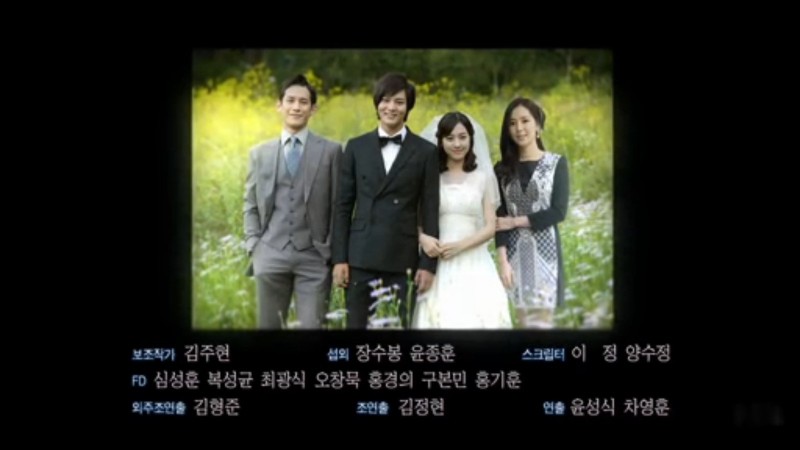
P.S. Can everyone behind Bridal Mask please give the same treatment to the Katipunan and the Philippine Revolution? So many parallels with the Japanese occupation of Korea. It’d be equally compelling. I could help! 😉
